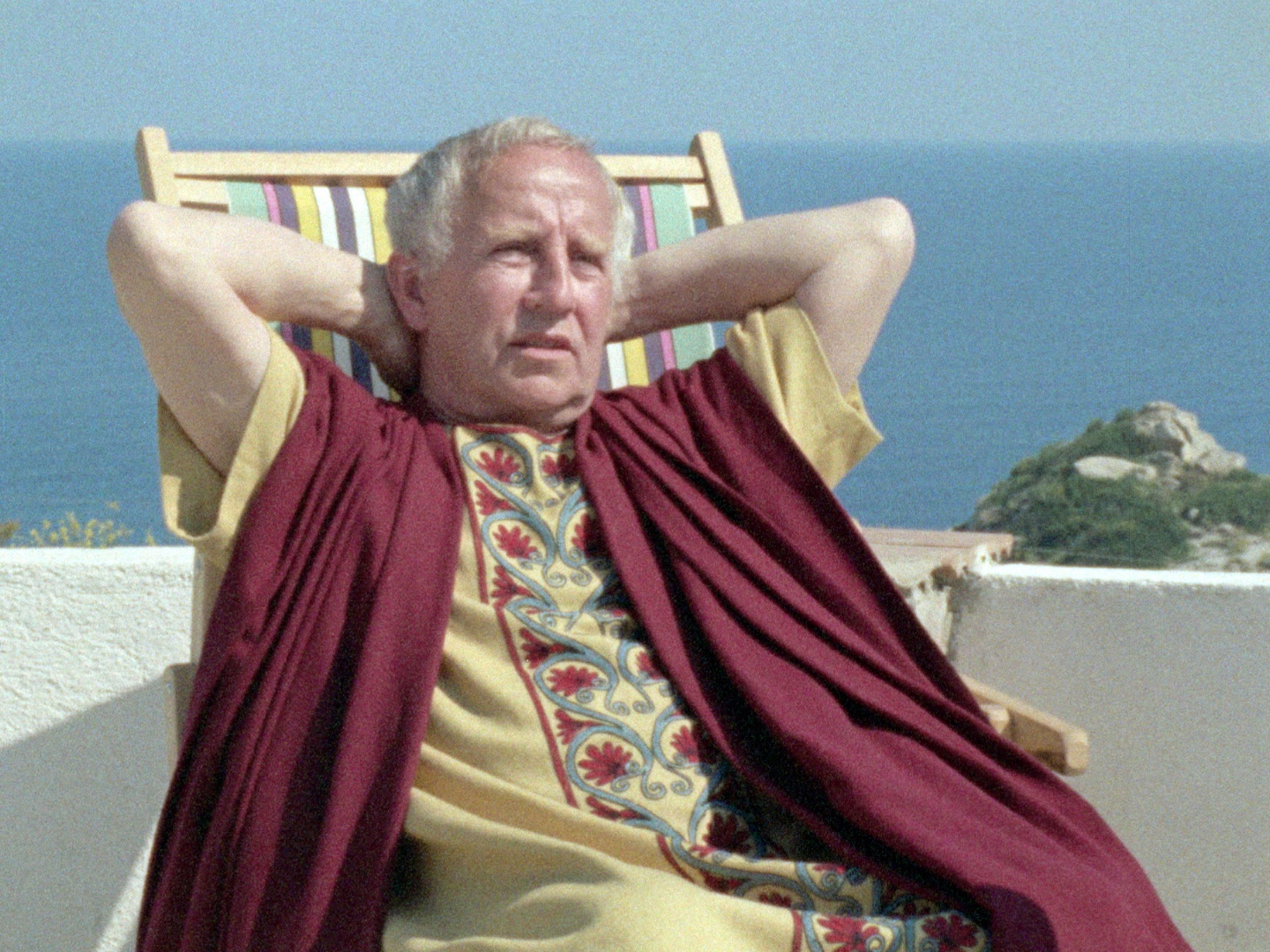
A shot from a car coursing through Rome in 1972 opens this interpretation of Brecht's unfinished experimental novel The Business Affairs of Mr. Julius Caesar. In a second part set in contemporary Rome, a young researcher discusses the economic and political manipulation that drove Caesar to power.
EN
“If Rome is the Eternal City, eternal time might be like a wave or a loop. In Rome, ancient imperial ruins live alongside modern offices, houses, and traffic. The city's bustling streets offer a potent setting for a film about memory and interpretation, reminding us that history is never really only about the past, but is constantly shaping and being shaped by the present.
Geschichtsunterricht plays with temporality in much the same way that the city of Rome does. Based on The Business Affairs of Julius Caesar, an unfinished novel by Bertolt Brecht, the film tells the story of a young man researching the life of the Roman emperor. The camera follows our protagonist, dressed in a pinstripe suit, as he drives around the city for long interludes. In between, he interviews a series of ancient Roman characters – a banker, a former soldier, a jurist, and a writer – who share their experiences and opinions on the life of the man who eventually became the empire's most famous ruler. While these characters are dressed in period costumes, they are surrounded by unfictionalized modern settings – a metal park bench, a striped lawn chair, a passing aeroplane.
The film's loose narrative juxtaposes views on Cesar's life in war, money, and politics. The characters reflect on who Caesar really was and how his rise to power impacted Rome. Implicit in the dialogues of these supposedly ancient characters are many of Brecht's own ideas about history, power, and economics. Geschichtsunterricht layers time, place, and perspective to show an ever-expanding flow of history that is never fixed but in continual re-interpretation.”
Sarah Foster1

